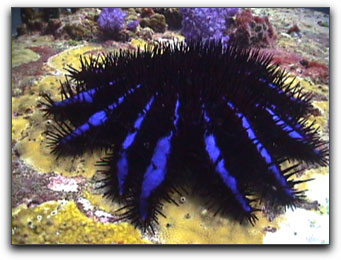April, 2005

Dissolve
Factory
Buena Software- $39.95 for Mac
$59.95 for Mac and Win.
www.buena.com
Review By Steve
Douglas
So many transitions to choose from; twirling
boxes, zooming hearts, double sided page peels, spinning, jumping,
skipping, hopping 2 and 3 D amazements of technological computer
wizardry and yet when we get right down to it, it is the cut
and cross dissolve that we use and rely on the most.
When using the standard Final Cut
Pro cross dissolve the pixels from both the source and destination
clips fade at equal rates, their transparency equitable on both
ends. Nothing wrong with that but suppose we could make that
dissolve just a bit more interesting, a touch more dynamic, a
little less dull?



Typical Cross Dissolve,
Good but ho hum
Buena Software has developed their Dissolve
Factory for both Final Cut Pro and Adobe's After Effects providing
the editor with far more control over the parameters of his/her
dissolve. The Dissolve Factory is not the bundle of 20 or 30
separate plug-ins that the title 'Dissolve Factory' leads you
to believe. Rather it is one single plug-in whose adjustable
settings enable you to create dissolves based upon either a clips
luminance, alpha channel, saturation, red, blue or green channels,
transition percentages or even the inverse of another clips fade.
Dissolve Factory is easily installed
though not into your regular Final Cut Pro plug-ins folder. Instead
you install the QuickTime plug-in named' Dissolve Factory Component'
by going to the Library/QuickTime in the Mac OS X. Once installed,
you treat it like any 3rd party plug in by opening up Final Cut
Pro and going to the QuickTime transitions folder. There you
will find it. Drag it to your clips and click on the transition
to open up its settings parameters in the viewer.

Source A and B transparency
menus provide an additional 20 possible dissolve settings
based on color, transparency, alpha and luminance.
Now the fun begins as the Buena Dissolve
Factory really does offer you a much greater versatility in designing
just the right dynamic of cross dissolve. While the Buena website
does not provide on site tutorials with suggestions and settings
in order to gain a particular effect from its software, you will
find that the Dissolve Factory is easy to use and very intuitive.
Just drag it to the clips and have fun scrolling through and
adjusting the many different settings that are offered to you.
You will not find anything here to confuse you. Anything done
is easily undone should you find that necessary.
Here, a clip of Kenyan zebras dissolves
into one of a Tanzanian Camel. The settings provide you with
the choice of which colors you wish to fade out first and last
as well as which should be faded back in.



In this dissolve
I faded out the semi black of the zebra stripes first
and color clicked on the grass to fade it out last, for the incoming
clip
I used the eyedropper to bring in the brown grass first and the
sky last.
Dissolve Factory can be applied as a
transition to two clips, or to a clip by itself fading that clip
out based on whatever background color you may have set in your
project. Once set, you can adjust the additional parameters to
fine-tune the specific form of dissolve you are seeking. In some
circumstances I noticed a color shift when using Dissolve Factory
in Final Cut Pro. Buena software does address that in their brief
manual that comes supplied with this plug-in. Because Final Cut
Pro works in the YUV color space internally as opposed to QuickTime,
which works in the RGB color space, you many need to switch FCP
to work in the RGB by selecting "Always render in RGB"
in the FCP Sequence Presets.
In this final example, a dissolve from
a slow moving nudibranch to an even slower moving starfish, I
wanted the brightness of the nudibranch to fade out last with
the black of the shadowed boulder to fade out first. Mid dissolve
I wanted the blue of the starfish to fade in first. Thus, we
have the sequence below.


Notice the dark areas,
their transparency fading first.


Blue pixels from
incoming clip become apparent Bright
Pixels are retained from Source Clip


Blue of Starfish
really coming through while luminance of nudibranch is now fading.
Using Dissolve Factory was simple and easy to play around with,
as it would be for either the beginner or pro. Though I always
bemoan sites that do not provide tutorials for the novice not
quite sure of themselves, it was hard to go wrong here. Changes
in the settings provide instant feedback. With so much to chose
from the Buena Dissolve Factory provides your editing suite with
the dissolve tools you were waiting for but did not know you
were missing. This is one transition that has been quickly added
to my favorites folder.
Steve Douglas is
an underwater videographer and contributor to numerous film festivals
around the world. A winner of the 1999 Pacific Coast Underwater
Film Competition, 2003 IVIE competition, 2004 Los Angeles Underwater
Photographic competition, and the prestigious 2005 International
Beneath the Sea Film Competition, Steve has also worked on the
feature film "The Deep Blue Sea", recently contributed
footage to the Seaworld parks for their new Atlantis production,
and is one of the principal organizers of the San Diego UnderSea
Film Exhibition. Steve leads both African safari and underwater
filming expeditions with upcoming filming excursions to Kenya,
Bali and the Red Sea. Feel free to contact him if you are interested
in joining him on any of these trips. www.worldfilmsandtravel.com
copyright © Steve Douglas
2005
This article
first appeared on www.kenstone.net and is reprinted here
with permission.
All screen captures and
textual references are the property and trademark of their creators/owners/publishers.